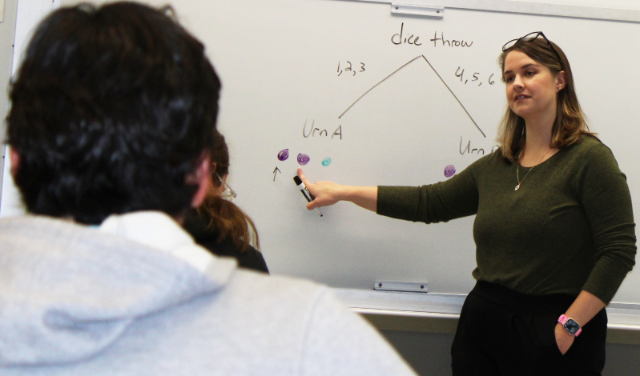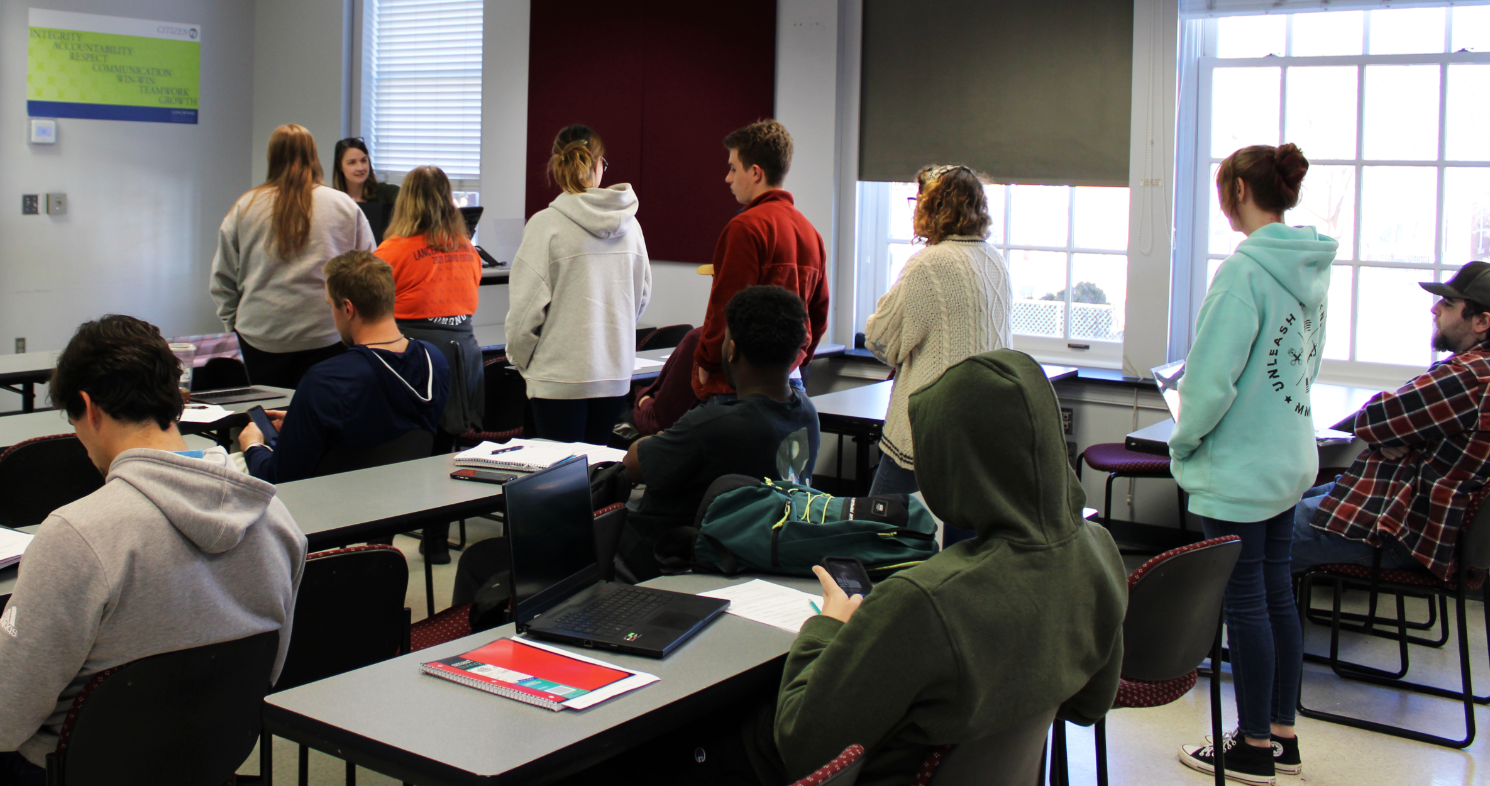Longwood University’s College of Business and Economics students can take ECON 306 Experimental Economics as an elective experience in CBE undergraduate education programs. The engaging and active learning environment explores the use of experimental methods to study economic behavior. Topics include experimental design, laboratory techniques, financial incentives, game theory, and analysis of data. Critical thinking and analysis allow students to gain an understanding of how economics uses experiments to test and understand rational human behavior and use that data to make informed decisions. Reasoning and problem-solving for expected values, game theoretic equilibriums, and interpreting results allow students to explain how risk and uncertainty affect rational behavior.
This course is currently being taught by Dr. Adrienne Sudbury, Assistant Professor of Economics. With an experience-based focus, she utilizes various experimental games and simulations to demonstrate basic economic reasoning that includes bargaining, auctions, market price competition, market failures, voting, contributions to public goods, lottery choice decisions, and charitable giving. This hands-on approach requires students to be prepared to engage with Sudbury and their fellow peers.
 Sudbury provides meaningful opportunities for students to be creative and take risks. “As you will learn in this class, experiments do not always happen as planned. All I ask is that you face each challenge with me, learn with me, and be ready to adapt to different situations. This will allow us to learn together and will hopefully make the process more enjoyable and fruitful for everyone involved.” A recent class experiment, the Urn Game, helped students build and evaluate a probability research question, identify treatments, outcome variables of interest, results, what went wrong, and what variables could be changed to achieve different results. Utilizing logic and reason, students enhance their analytical and critical thinking skills.
Sudbury provides meaningful opportunities for students to be creative and take risks. “As you will learn in this class, experiments do not always happen as planned. All I ask is that you face each challenge with me, learn with me, and be ready to adapt to different situations. This will allow us to learn together and will hopefully make the process more enjoyable and fruitful for everyone involved.” A recent class experiment, the Urn Game, helped students build and evaluate a probability research question, identify treatments, outcome variables of interest, results, what went wrong, and what variables could be changed to achieve different results. Utilizing logic and reason, students enhance their analytical and critical thinking skills.
Megan Cheff, a business administration major with concentrations in management and marketing with an economics minor and supply chain management endorsement, commented, “What I enjoy most about Experimental Economics is the hands-on approach to learning. Demonstrating the concepts of the course through experimental games such as Blackjack and the Urn Game helps to reinforce the ideas and makes learning more enjoyable. At the end of the day, I end up looking forward to going back to this class. More specifically, during the Urn game experiment on Tuesday, I was able to understand the idea behind probability based on risk. Before the Urn Game experiment was conducted, I was unclear on how this concept worked.”
Experimental Economics is offered every other spring and will be available again in 2026. Almost all of the CBE faculty incorporate experienced-based learning into their courses. For more information or to sit in on one of our classes, email the Executive Director of CBE Student Success, David Zirkle, at zirkledw@longwood.edu.

